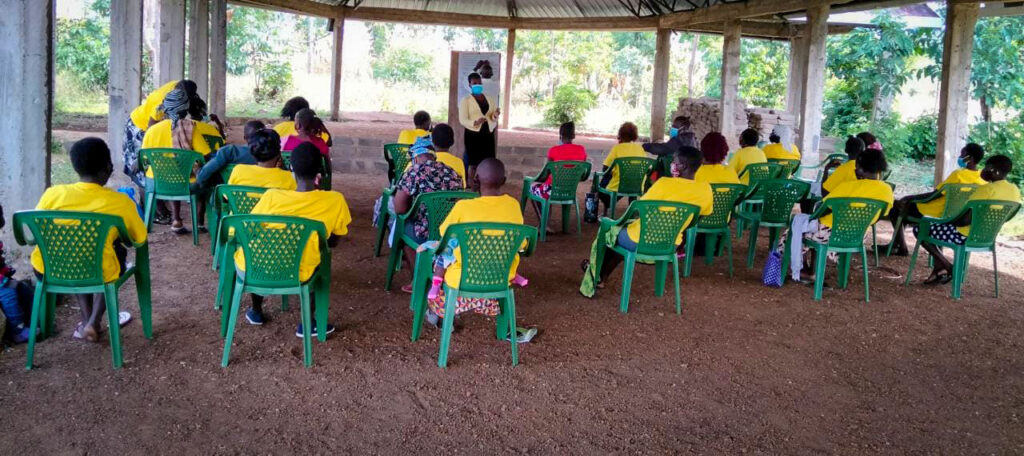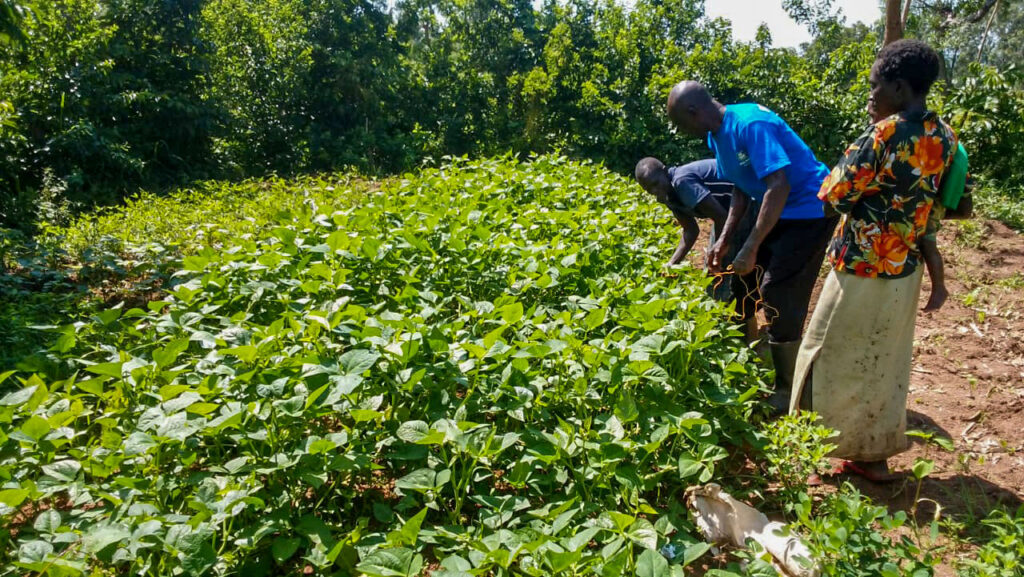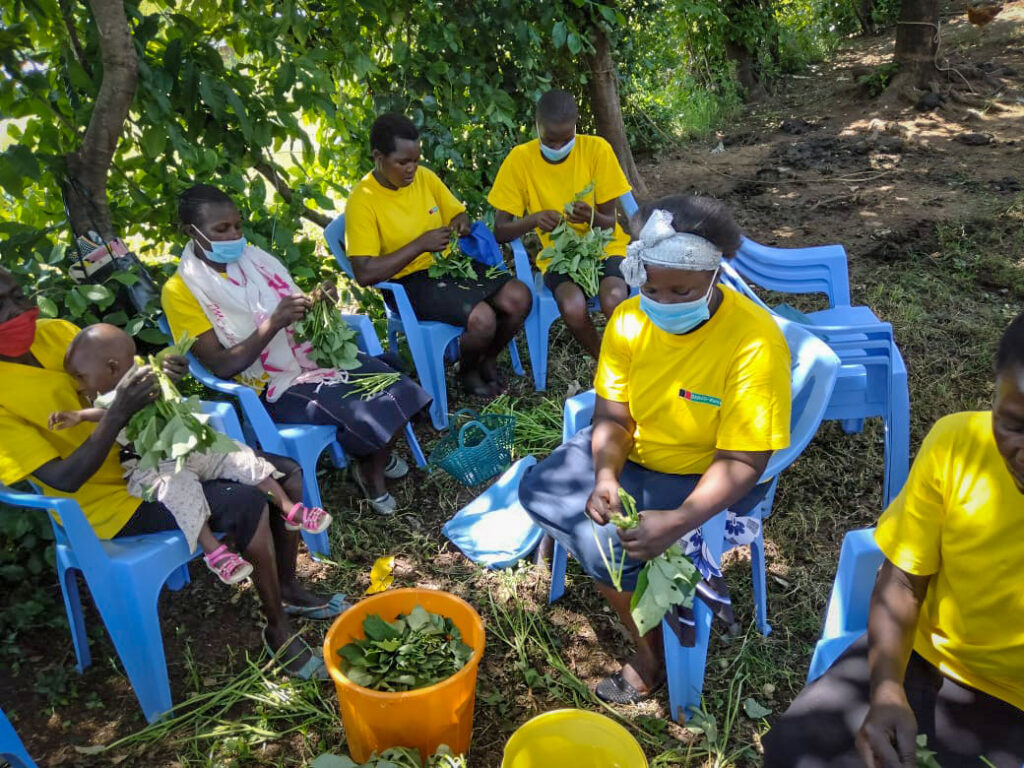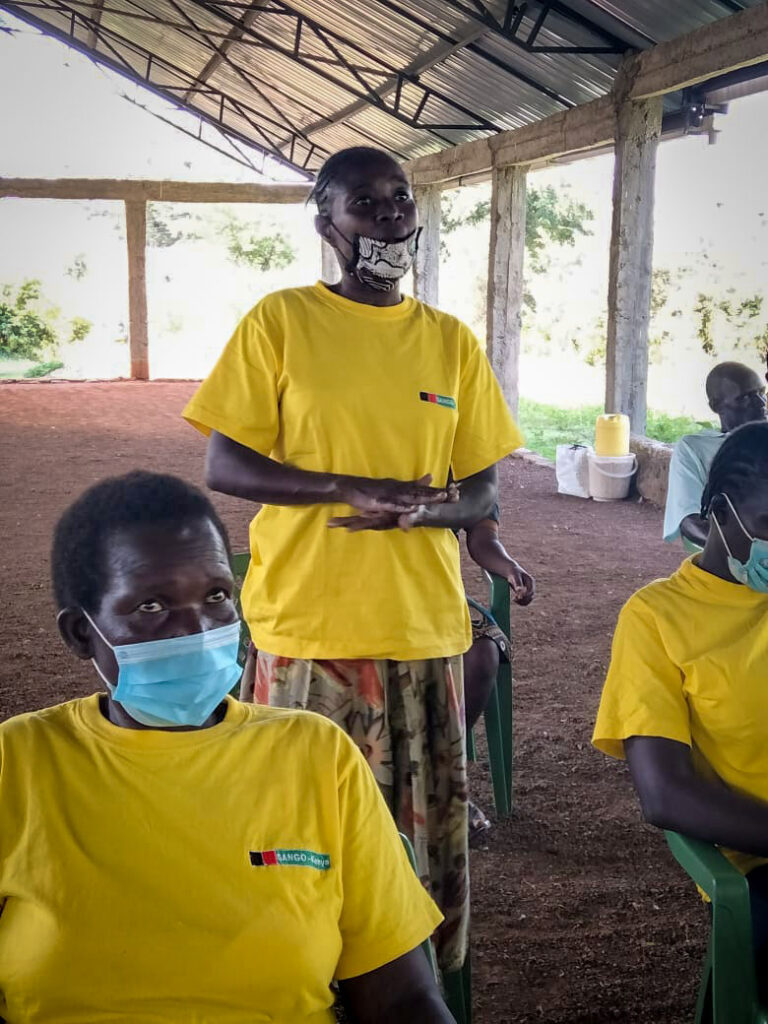It’s hard to believe it’s been just one year since we completed the pilot project for SANGO-Kenya. With your continued support, we – the farmers, the SANGO-Kenya team — have accomplished so much!

Last year, we had 19 farmers in one village. This year, we have 73 farmers in two villages. We’ve increased the training in both agriculture and nutrition, emphasizing soil health, organic pesticides, and more nutritious ways for the farmers to prepare meals for themselves and especially young children.
There is so much enthusiasm among the SANGO-Kenya farmers. They are spreading the word and, as a result, people in surrounding communities are learning about our sustainable farming methods and the increase in crop yields.

We have had people from other villages just show up to learn at our training sessions. We could have many more participants if we only had the resources. It isn’t really surprising that more people want to participate. The women – and their children – are realizing numerous benefits: Their food and nutrition security is stronger because they have access to more and more nutritious vegetables. Many have made money by selling surplus vegetables at the market – and they have saved money because they don’t have to buy as much food.
Nothing communicated this enthusiasm as much as a report we recently received from our Field Officer Winnie. After one of the training sessions, she asked the women how they felt about participating in SANGO-Kenya. The responses were so positive – Constance and I were so excited. We have not been able to speak directly with the farmers for more than a year. Until we get back – which we are hoping to do some time this year – this was the next best thing.
Here are some of the comments. Note: This is the translation Winnie made from Dholuo to English with only minimum editing as I wanted to share their words as closely as possible.
VEGETABLES

- Consumption; Farmers are consuming the vegetable and also sharing with their neighbors, it has provided food security
- Marketing; they are selling the vegetables and use the cash to buy;
· Non-food items such as clothes, shoes, soap etc.
· Food items such as maize for maize flour, fish, omena [small fish used to add protein to vegetables and stews], tomatoes
CONVENIENCE;
They are able to get to the vegetables easily [as they are in their own farms], they don’t have to buy vegetables at other farms or market, which saves on time and money.
EMPOWERMENT;
They’ve earned respect from the community.
KNOWLEDGE;
Spacing done during planting has helped in improving the quantity of the yield and made it easy during harvesting unlike before when they didn’t have the knowledge.
They also apply nutrition knowledge in their day to day meals.

It’s hard to explain how excited we are. Unlike many NGOs, SANGO-Kenya doesn’t provide cash or material goods to participants; we provide knowledge. It is very inspiring to us that their response is so overwhelmingly positive. They are so eager to learn, to improve their lives and the lives of their children.
A lot of the credit goes to the dedication and boundless energy of our team in Seme – our Field Officer Winnie, our agricultural advisor Dominic, and our nutrition advisor Fredrick.
We also could do none of this without your support and encouragement.
Erokamano!
Kit
Your generosity has made all of SANGO-Kenya’s programs possible. Your tax-deductible donation today will help SANGO-Kenya continue to recruit, train, and support more farmers so they can improve their nutrition, food, and economic security for themselves and their families. Please consider making a tax-deductible contribution. Thank you.
Please like us on Facebook:
SANGO-Kenya
And follow us on Instagram:
SANGOKENYA
Write me! I love hearing from you! [email protected]
